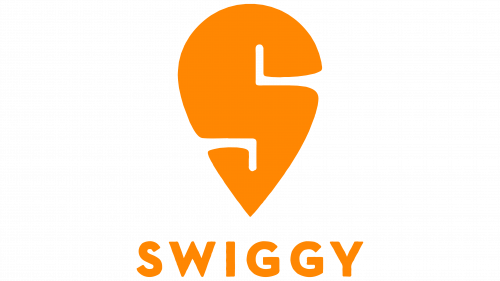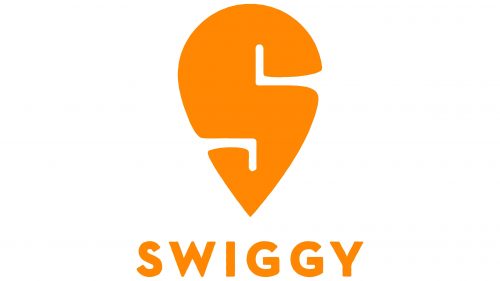Swiggy has gained the reputation as an online food ordering and delivery platform. Its roots can be traced to an e-commerce website called Bundl created by Nandan Reddy and Sriharsha Majety in 2013. In 2018, it was ranked the largest food delivery company in India.
Meaning and history
Due to the clever use of colors and symbols, the Swiggy logo does a great job in promoting the brand. Not only does it give a subliminal hint at the industry in which the company works, but it also helps to gain new orders.
What is Swiggy
Swiggy is an Indian food delivery company established in 2014. In addition to its original business, the company introduced general product deliveries and instant pickup and drop service in 2019. The parent company is Bundl Technologies Private Limited.
2014 – present
Similar to the majority of its competitors, Swiggy has a logo consisting of both an emblem and wordmark. The emblem is the most eye-catching part of the design, which is partly due to the fact that it’s higher than the letters forming the name of the company. Also, it is more unique and helps the brand to stand out.
And, without any doubt, it is highly meaningful. To begin with, the “S” stands for the initial of the company’s name. Also, it forms a location symbol, thus creating a link with the company’s offer.
In comparison to the singular emblem, the wordmark doesn’t look as distinctive. It’s an austere sans serif typeface with classic proportions and uniform thickness of the lines.

However, in this case, the generic font is ideal as it doesn’t steal the limelight from what is the most important part of the Swiggy logo, the “S” icon. On the whole, the main function of the wordmark here is just to introduce the name of the brand to new customers, while the icon serves more intricate purposes of sending a subliminal message. So, a decent contemporary type providing legibility at any size is exactly what’s needed.
Colors and font
Colors from the yellow-red spectrum have been used by many fast food restaurants (think McDonalds, Burger King, Wendy’s, Whataburger, In-N-Out Burger, to name just a few). Some people who possess a high level of expertise in marketing claim that these colors boost our appetite. So, companies use it as a way to make people feel hungry when they see their logotypes.
One of the explanations of this phenomenon is the so-called ketchup and mustard theory: these two colors represent arguably the most vivid, mouthwatering, and omnipresent parts of a wide range of dishes served in fast food restaurants.
Another explanation is the way these colors influence us on the psychosomatic level. For instance, red raises one’s blood pressure and heart rate, making us feel more energetic and, as a result, hungrier.
The orange color from the Swiggy logo is somewhere in between the red and yellow, so in a way, it borrows some qualities from both. Orange is supposed to stimulate the brain. In addition to boosting mental activity, this often results in the feeling of hunger. Psychologists also claim this color makes people feel welcome.
Swiggy may have another reason for using orange in its logo. It’s the color of turmeric, which is immensely popular in India.
As we mentioned earlier, the typeface, in spite of its simplicity, perfectly fits the overall design. Many of its features, like the lack of serifs and the equal thickness of the lines, make it similar to fonts from the Helvetica family. Yet, having all the advantages of the immensely popular Helvetica, the glyphs have different shapes. This is especially noticeable in the case of the “G.”








